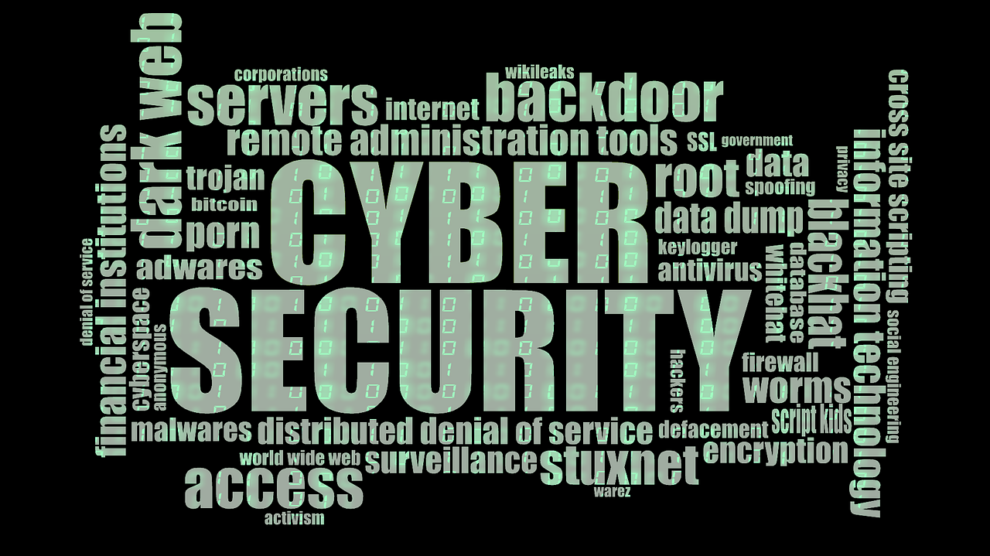If you’ve been following the news, you’ve probably seen reports covering major breaches happening in the financial institutions we use on a daily basis.
While no one looks forward to a data breach, these episodes have given us the opportunity to take a good look at what works and what doesn’t. The result is that we have a good idea of what to ask from financial institutions — and what should be avoided at all costs.
Our fast-paced world can leave identities vulnerable if key information isn’t properly protected. Choosing a financial institution that’s ready and willing to take the appropriate steps to protect data in a world where technology capabilities are constantly evolving is paramount to maintaining both financial data and assets.
What You Need from Your Financial Institution
Banks, money lenders, and those we trust with our financial futures need to be trusted entirely. You wouldn’t be willing to blindly put your trust in an institution that hasn’t proven itself to be trustworthy. You’re also not likely to remain a client of an institution if something goes wrong due to negligence — especially if the error is not followed up with appropriate change or action.
Not only do banks and financial institutions have the moral obligation to protect a client’s data, but the future of the business also depends on it. It’s so ingrained in the industry and our society that there are laws in place that require it, further protecting you from ineptitude and intentional fraud.
To determine if your financial institution is doing everything that can be done to keep your private information secure, look for companies that do the following:
Uses multiple identification measures – You want to work with a company that has multiple layers of protection in place. A two-step (or more) verification process should be a non-negotiable requirement. This ensures that a breach in one location doesn’t automatically end up with your information falling into someone else’s hands.
For your protection, you should always opt into multi-step processes to confirm your identity, even if it brings with it an added inconvenience.
Has protocols in place that are well-publicized – We’ve all heard stories of someone who’s received a phone call or email requesting sensitive information and claiming to represent a financial institution. To help protect valuable clients, a financial institution should always have a specific way they contact their clients. This information should be widely distributed on a regular basis to ensure all clients are well-informed and know what to expect when the company sends out important communications. When this information is well-understood, people are less likely to fall for phishing schemes, leaving the institution’s clients better protected and the company’s reputation firmly intact.
Always provides clients with options – Don’t choose a financial institution that’s overly restrictive. You should always be able to unsubscribe from emails and promotional material. Look for customizable plans, so you can get just what you need, and not have to settle for a one-size-fits-all approach. You’ll find most institutions without these elements don’t always have your best interest at heart and a customized plan means you’ll get just what you need out of the partnership — and not be locked into more or less than you’ve been searching for.
Offers data encryption – It’s not enough for a company to offer multi-step authentication. Look for a financial institution with sophisticated encryption in place. This should work in real-time, offering you immediate protection the instant you begin to input information. Such encryption helps reduce the possibility of information leakage even during a momentary network breach.
Has a policy for previous clients – You may find you have no need to leave the financial institution of your choice. If you do, though, you’ll need to know that important information you’ve shared with them has been properly disposed of. Ask what their policy is for expunging your records and information, and if you don’t get a clear answer, it’s best to continue your search elsewhere.
Provides a plan of action for a security breach – In a world where technology is rapidly advancing, a history with zero breaches can be enticing. Don’t let it fool you, though, there’s always the potential for a security breach to happen. If one does, it’s best that an institution has a clear plan in place to navigate the incident. This is one instance where it’s better to be over-prepared than underprepared.
Exclusively uses secure networks – A secure network is one of the first lines of defense.
If your institution is using a subpar network, it won’t matter what other provisions are in place — your information and financial identity are at risk. Only use companies that pride themselves on the security of their networks.
Financial institutions are here to work for you. As much as you are their client, the company is yours. Don’t be afraid to ask the hard questions and demand the best from the institution you move forward with.
Take Protection One Step Further
Start by choosing a reputable financial institution that offers high-quality service and plenty of security. You don’t need to stop there, though, you can implement security measures of your own to make sure your information is even safer. Remember, the right information in the wrong hands can compromise you, even if it’s harvested from somewhere other than your financial institution. To protect yourself best, consider implementing the following:
Use only reputable sites – Your devices are likely connected to one another — and contain enough of your personal information to pose a serious risk if they’re ever hacked or compromised. To help avoid exposing your information to the wrong people, always use reputable websites and heed any warnings your browser might give you about potential hazards. Remember this key piece of advice: if it sounds too good to be true, it likely is.
Be watchful for phishing schemes – Don’t fall for text messages, emails, or phone calls urgently telling you your information has been compromised and time is limited. Resist the urge to follow up or provide the information as the majority of these aren’t sanctioned and will likely lead to fraud. If you’re ever concerned about your accounts, call your bank or lender, using information off of a previous statement, and speak directly with a representative.
Pay attention to your passwords – These days, you likely need a password for most places on the web you regularly visit. Don’t fall into the trap of using the same one over and over, or rarely changing your passwords. You may have the option to save complex passwords to your device, but be sure you’ve taken additional precautions to protect your network from being hacked. Never use important names or dates and try to incorporate special characters, numbers, and capital letters, whenever possible. Of course, never leave your passwords in a visible or easy-to-find location.
Use networks you know – We’re always on the go. With so much information right at your fingertips, it can be tempting to get that information or check a to-do item off your list even when you’re not on a known network. Don’t fall into the pattern of using your devices on unknown or untrustworthy networks. Wait until you are using a secured network to best protect yourself — and always choose websites that offer additional security, especially when exchanging money.
Rein in your social media habits – Social media has become such a regular part of life that many times people are tempted to overshare. Resist the temptation of checking into places that suggest your regular habits or indicate travel. Information about your family, your address, schools you’ve attended and places you’ve worked are frequently available to anyone who stumbles across your page. This identifying information can be used by others to make new accounts or to obtain access to accounts you already have established.
Never use others’ devices – Make a strict rule to use only trusted and known devices, especially when exchanging private or financial information. Avoid public devices whenever possible as internet cafes, libraries, and other public forums are at greater risk for malware and unsecured networks.
Be responsible with your records – Tossing important information in the trash isn’t enough. If you’re disposing of sensitive information, make sure you are doing so properly. Anything that has your full name, bank records, birthdates, social security numbers, or other identifying information should always be shredded before it’s placed in the trash. This minimizes the likelihood that your information will be pulled from paper documents and the possibility of identity or financial theft.
Keep an eye on your own identity – Receiving unusual mail or phone calls? Don’t ignore them and assume your identity is still your own. If you have an inkling that something isn’t right, always follow up with your known accounts and any other accounts that claim to belong to you. You may find you’ve already been a victim.
Staying Ahead of the Game
These safety measures can work to keep your identity and assets safe. Employing them, and choosing a reputable financial institution with your best intentions in mind, will get you off to a great start when it comes to protecting your data.
Unfortunately, constantly changing technology means hackers are already looking toward the next best thing, racing at the forefront of new technology that can once again have you vulnerable.
To combat this, go ahead and take those extra steps to keep yourself protected. Opt to use security software on your home networks and on any portable devices. Malware detection can be invaluable, as can Virtual Private Networks (VPN). These networks create a secure connection for your internet-ready devices, wherever you are.
With the capability to work as a proxy, rerouting your signal and masking your location, would-be hackers aren’t able to pin you down or retrieve relevant data. Not only do you hold onto your anonymity by using a VPN, but such software also encrypts any data you exchange, making it more difficult for someone peeking in on your network to poach crucial information.
Many of us take the time to fix our home networks with passwords and extra protection. One of the significant advantages of using a VPN is that it’ll work on your device all the time, even when you’re traveling or on unfamiliar networks. A VPN enables you to control how protected you are, even during those times where you can’t control the networks you have access to.
When it’s time to take that next step in protecting your financial health and identity, know that not all VPN services are created equal. Ultimately, your protection is only as good as the service you use, so you want to make sure you move forward with a quality VPN service.
A good VPN will provide plenty of servers to reroute through and won’t cramp your internet speed or capabilities. For the best results, look for a VPN that specializes in protection with the ability to deflect packet sniffing and man-in-the-middle attacks. The more barriers you create between you and an internet-savvy predator, the better off your information will be.
Cybersecurity of the Future
Striking the right balance with our cyber capabilities has never been more critical. Our technology and cyber advancements allow us an incredible amount of opportunity and can lead to great financial success. It’s also obvious that in the wrong hands, or when not properly implemented, this very same tool can be disastrous.
Preparing for true cybersecurity for your financial assets is important and requires looking at your current needs while planning for your future needs.
Do what you can for yourself at home and on your mobile devices and choose to rely on a financial institution that will do the same for you on a company level. If you’re both looking toward future security needs, your money and your personal data will be at its safest.





